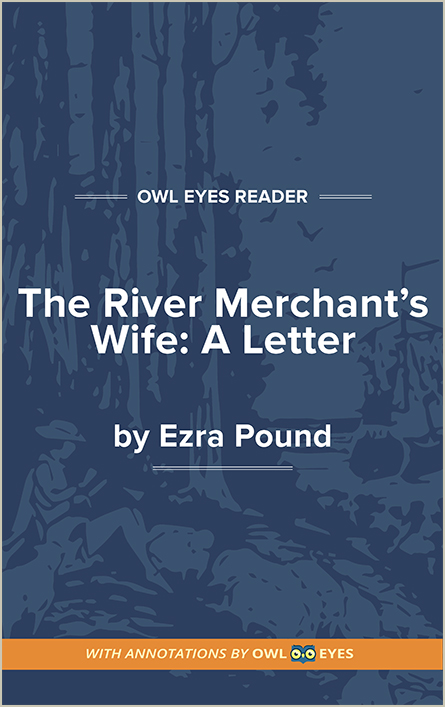- Annotated Full Text
- Literary Period: Modernism
- Publication Date: 1917
- Flesch-Kincaid Level: 6
- Approx. Reading Time: 1 minute
The River Merchant's Wife: A Letter
“The River Merchant’s Wife: A Letter” is an avant-garde poem that appears in Ezra Pound’s third collection of poetry. For this collection, Pound used translation notes left behind by East-Asian scholar Ernest Fenollosa to “translate” Chinese poems—even though Pound did not speak the language. “The River Merchant’s Wife: A Letter” is told from the perspective of a woman in 8th-century China while she waits for her husband to return from his business trip. The wife relates the story of their love and longs for his return. In this poem Pound incorporates both imagism, a Japanese poetic structure that sacrifices strict rhythm and meter in favor of precise imagery and sharp language, and interpretations of Chinese ideograms, written characters that symbolize the idea of a thing without indicating the sounds used to say it. He inserts words into his lines based on their rhythm, sound, and imagery to evoke their emotional connotation rather than their literal definition. While this makes some of Pound’s poetry slightly less accessible, it adds to the prosody of the lines. Because of these innovations, Pound is seen by many as the creator of the modernist aesthetic in poetry.
- Annotated Full Text
- Literary Period: Modernism
- Publication Date: 1917
- Flesch-Kincaid Level: 6
- Approx. Reading Time: 1 minute

